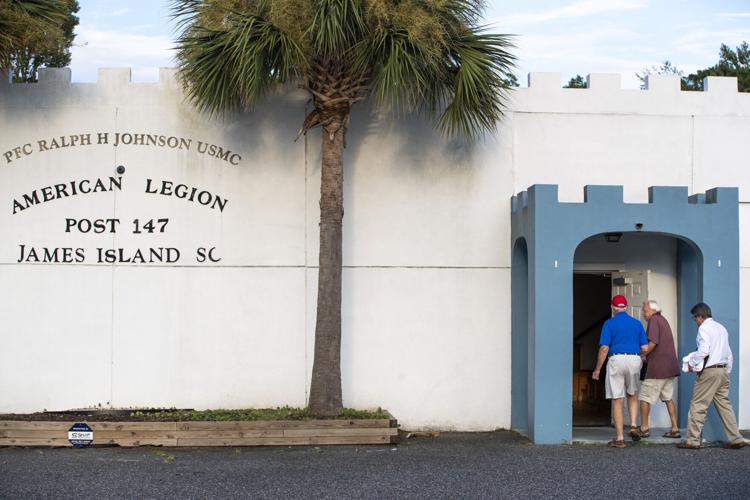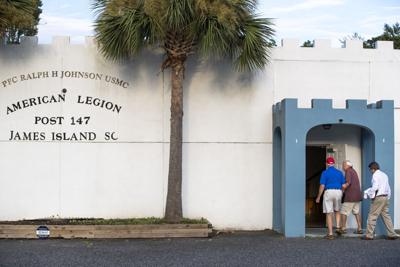Everyone was riled up a few months ago about this South Carolina “Venue Crisis” — for good reason.
Bars and restaurants complain that rising liability insurance rates are killing them, and they have a point.
The James Island VFW shouldn't pay as much as some Folly Beach bar, for instance. One's open for members only, a few hours a day, a few days a week. The other is open to the public more than 12 hours a day, every day.
You don’t have to understand actuarial tables, insurance premiums or tort reform to know that’s doesn’t pass the smell test.
Yet they all pay through the nose — sometimes $32,000 a year or more — for policies that pay victims if the bar is found partly responsible because one of its customers goes out driving drunk and kills someone. That’s state law, and has been for years.
Sure, liquor liability complicates it, but also with good reason. The policies are money losers here, because we have some of the worst drunken driving rates in the country.
Hence, rate hikes ... and mad bar owners.
So the bar and restaurant owners, and their customers, joined what wasn’t entirely a grassroots campaign to champion the “S.C. Justice Act.”
Great name, right?
Trouble was, it wasn’t justice for responsible bars and restaurants. Nothing in that bill reduced their insurance rates. It would've simply reduced payouts that insurance companies have to pay victims of drunken drivers.
“The bar owners are being deceived by insurance companies,” Sen. Dick Harpootlian told The Post and Courier’s Nick Reynolds. “This whole idea that somehow this bill was going to lower their insurance rates is delusional.”

S.C. Sen. Dick Harpootlian, center, talking with Sens. Nikki Setzler and Shane Massey, is working with Sen. Wes Climer to force the Commerce Department to be less secretive about how it gives away tax money to business recruits. Cindi Scoppe/Staff
In fact, the Justice Act started life at least partially at the urging of a company found liable after Mallory Beach was killed in a boat with an underage Paul Murdaugh — who’d bought beer at a Lowcountry convenience store the day Beach was killed.
And who a jury later found was killed by his own father. But that’s another story.
Anyone who owns a house or car knows insurance rates seldom go down, and have been going up ridiculously in the past few years. Liquor liability certainly won't fall in a state with the fifth-highest number of drunken driving deaths.
What does this mean? Well, the bars and restaurants were just pawns — sympathetic ones — in a game by insurance companies. And greed and politics doomed their efforts ... this time.
Now, there’s only so much state lawmakers can do about these rates as long as they refuse to exert some regulatory power over insurance companies. But there were some bipartisan efforts that might've helped a little, or stemmed exorbitant rate increases more than the laughably named “Justice Act.”
One bill would’ve set up an account to help bars pay if they lose a lawsuit, even giving them credit for training employees to spot drunken patrons. Another would’ve forced insurance companies to distinguish between the full-time bars and part-time, members-only establishments such as VFWs.
And one bill, promoted by Sen. Gerald Malloy, would've set standards for intoxication and negligence that would take some guesswork out of assigning liability. Which should curb rates if done correctly.
Both sides thought they had a compromise earlier this month, but it fell apart in the last minute. It has to do with the trucking industry — don’t ask, it’s complicated.
Bottom line, the bill failed, “because the lobbying groups demanded to be kept together as one unit thereby walking away from at least partial success,” Sen. Sandy Senn noted.
That was clear in a telling exchange on the Senate floor that day. Harpootlian — a trial lawyer who represents drunken driving victims (and, yes, occasionally really bad guys) — tried to promote a compromise.
But Senate Republican Leader Shane Massey, firmly on the side of insurance companies, refused to budge.
“If you would allow other things to be considered, you may not get the whole cake, but you’d get a piece,” Harpootlian said in his best down-home description of compromise.
“Maybe,” Massey said, “or I don’t know that’s everything you consider. I think elections have consequences, so we’ll see.”
Massey is absolutely right. With a few more lawmakers more sympathetic to insurance companies, which will be an underlying issue in elections this year, the state could curtail lawsuits for victims of drunken driving.
Then what? Well, the families of victims will get nothing, and the seriously injured or paralyzed will end up on Medicaid or Social Security disability. Which will mean taxpayers pay for the mistakes of others. And bars will have even less reason to cut off already drunken customers.
And they'll keep paying those insurance premiums, which will continue to rise.
You don't have to know how to read an actuarial table to know who wins there; it's the people who set the tables.









